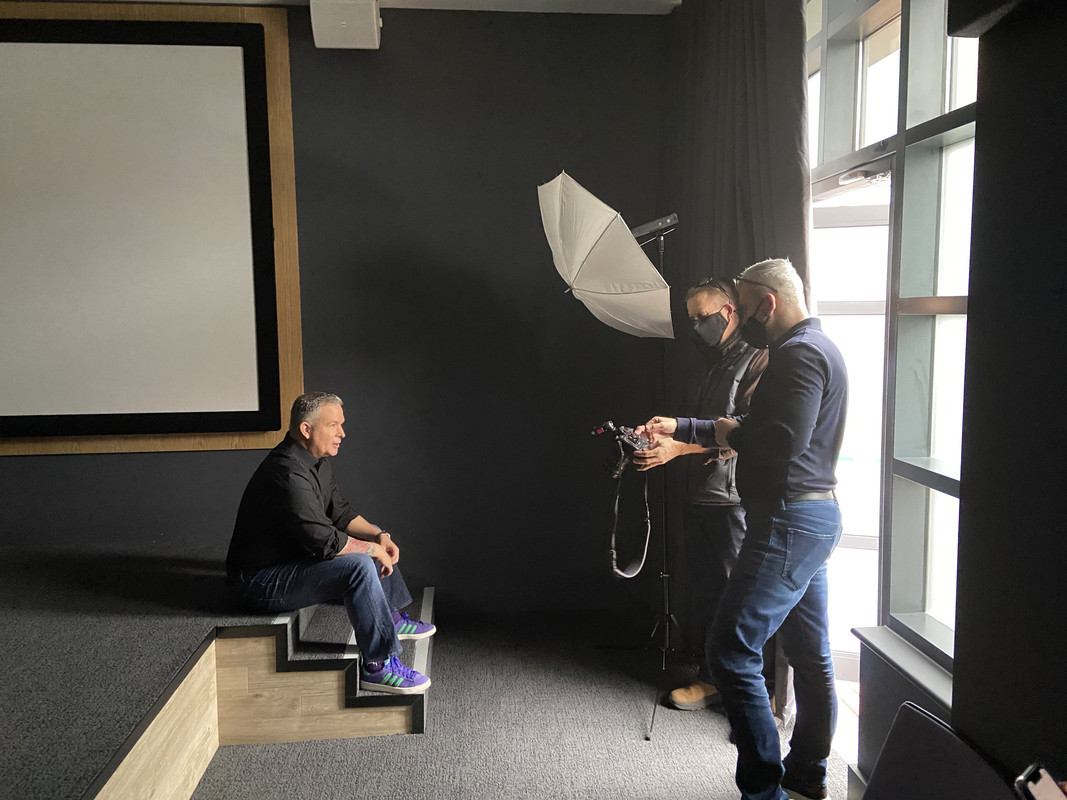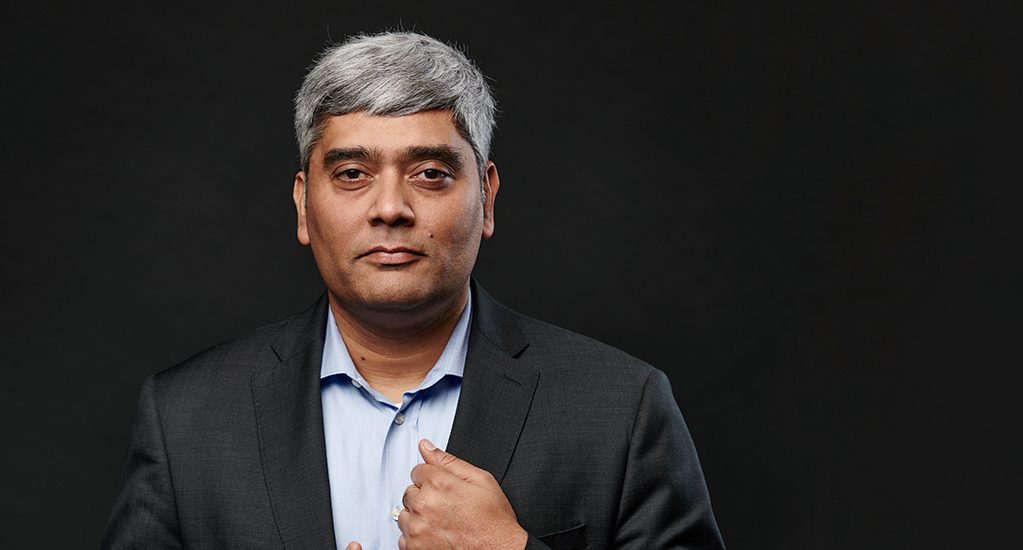There’s a fragile point in time during every business deal when the blood, sweat and tears are condensed into a single instance. The efforts made to secure the sale, the capital invested to deliver your product, and the time spent nurturing relationships are boiled down to a solitary moment when it all comes together or fails to meet expectations. This is the moment you either delight or disappoint.
This is the moment of service.
ERP vendors have a long history of failing to meet customer expectations. Few industries have such a poor reputation for peddling expensive and troublesome products, wrapped up by an overbearing contract, deliberately confusing pricing, and impossibly inflexible terms – all of which are garnished with penalties, fines and sanctions for the most spurious of reasons. Put in such stark terms it is somewhat surprising that the ERP industry has survived at all, let alone flourished. Yet, for five decades it has continued its trajectory and spawned into one of the most lucrative sectors of commerce while giving rise to many of the most powerful companies in the world.
In the wake of this dismal record on customer satisfaction one ERP vendor is taking the rest of the industry to task with a bold new proposition that puts service at the heart of its purpose.
IFS has been selling software since 1983. The Swedish ERP company made its name developing maintenance solutions for industrial customers and in 1985 launched the first version of IFS Application – its ERP suite. Over the next three decades it meandered its way through a series of acquisitions, product launches, customer wins, forays into public ownership and ultimately was acquired in 2015 by EQT, a Swedish private equity company.
That short paragraph ultimately sums up a 30 year period in IFS’ unremarkable history.
It wasn’t until a few years after EQT acquired the business and appointed Darren Roos as the CEO that IFS started to develop its personality. In the short time since Roos has been at the helm, the number of marque customers that have joined IFS has accelerated, the identity and brand has been reborn and, with the launch of IFS Cloud, the company now has a product and service offering that can stand shoulder to shoulder with any technology vendor.
DR “Back in 2018 IFS was irrelevant. It was just one of the ERP vendors and it really didn’t matter. I believe that today we matter, that today when you look at the fact that we are outgrowing the market by a factor of three, we are relevant.”
I first met Roos a little under two years ago at the company’s annual conference in Boston. Over the course of three days, I attended seminars, keynotes, customer sessions, met most of the IFS leadership team, and even managed to find time for a Duck Boat tour along the Charles River. There were any number of things that I could have taken away from that experience but the one that resonated with me the most was how clear Roos was about how he wanted to build his company. Yes, the customer testimonials were compelling, the augmented reality demonstrations for field service management were exciting, and the roadmap for IFS Applications was ambitious. But above all else, the thing that Roos impressed upon me the most was that he intended to use all his previous knowledge and experience to transform IFS into a different kind of ERP vendor – one that was built on trust, customer relationships, project success and delivering value.

Two years after our first meeting (and a full three years after Roos took on the role of CEO), I sat down with him again to find out how far he had come in achieving those lofty ambitions and to talk about the next evolution of IFS Application – IFS Cloud.
Functionality used to be the be-all and end-all for ERP vendors and most have spent decades selling raw capability as their USP. But in 2021, ERP buyers have a different set of priorities. Application functionality is simply table stakes – what sets one vendor apart from another is its ability to get the job done: to sell solutions rather than products, and above all else, to deliver measurable value.
Roos inherited a largely inapt company. It didn’t really have a place in the market and although many of its customers had been loyal followers for decades, the reality was that IFS was a rudderless ship. It was extremely fragmented with eight separate regions all acting autonomously, the go-to-market strategy was disjointed, and its brand and messaging was dull and uninspiring. Roos had a big job on his hands to transform IFS from an incongruous ERP vendor with little or no SaaS proposition into the $1bn cloud business he had set his sights on.
DR “When I came into the company it was a mixed bag. IFS was very fragmented and there was no global strategy. On the flip side, I was incredibly fortunate to find a business that had some great fundamentals, because if the product had not been great, if the customers hadn’t been great, and if the people hadn’t been great, it would have been a much more challenging turnaround.”
So, it wasn’t all bad – one of the unintentional by-products of operating as a federated business for so long was that each region had to stand up on its own. It had to have capable people running the operations and excellent products to serve local customers.
DR “What was good though is that we had really good people. I guess in devolving the responsibility down to the regions, we ended up with a lot of people in the regions that were very customer focussed.”
Roos had some of the fundamentals for his big turnaround but there were still sizeable gaps in leadership, product, and overarching proposition that would require significant attention. The task at hand was considerable and would be a major test of Roos’ credentials. Afterall, he is a first time CEO and, although his previous experience included running large parts of much larger ERP vendors, the plain fact is Roos was untested at this level. His success was in part going to rest on his ability to win over and inspire those people who had formed the backbone of IFS for the last twenty years. I put it to Roos that it wasn’t as though EQT had brought Bill McDermott in to run the show – a lot of senior IFS people had probably never heard of Darren Roos and no matter how good his plan was he was going to need the help, support and goodwill of a lot of people who were about to be disrupted by a big package of change.
DR “I think there’s no question everything you’ve said is correct. Coming in as an unproven CEO meant I needed to make an impact. However, I had run a very large multi-billion business in one of our largest competitors and I came with a good amount of credibility as a result of the job that I’d done in the past. But I don’t think that’s what won me the hearts and minds. What won me the hearts and minds was an incredible amount of hard work. The changes that I made gained traction very quickly and we saw the results almost immediately. In 2018, which was the year I started, we saw revenue growth go from single digits to 32 percent.”

The service proposition
What does service mean to you? We are all familiar with the idea of customer service and customer experience but can you build a software company around these concepts? Roos and his team will tell you that you can. In fact, they will tell you it’s the only way to build a software company if you want to be relevant in 2021.
Service broadly falls into two categories: the service that ERP customers get directly from their software supplier (responsiveness, ease of use, ability to fix things, nice to deal with etc) and the service that the ERP customer can pass on to its own customers, enabled by that software (seamless experience, delivered on time, accurate billing etc). At its essence, enterprise software should be designed so that you, the end user, can delight your customers – so that everything you do which is enabled by that software delivers a perfect experience right from the point of sale through to the delivery and maintenance of your product. Historically, ERP software had been designed with the ERP customer in mind, not its customer’s customer, and this shift in focus to the outcome rather than the action should be the number one priority for all ERP vendors.
DR “Everybody strives for the highest possible customer satisfaction, high customer retention and higher advocacy. To achieve that, customers need to be served well at all stages. It’s about providing them with the right quality products at the right time and this means produced on time by your manufacturing plant, delivered on time, sending an accurate invoice, having efficient call centres and providing great field service. When all that comes together, we call that the ‘Moment of Service’ and our goal is to enable you to deliver your moment of service.”
It may seem like a small shift in tone but it’s actually a seismic leap in purpose. IFS’ entire proposition is elevated from being a set of applications that manage finance, HR and assets to being an enterprise service solution that provides end-to-end tools to deliver for customers’ customers.
What matters today is experience and a seamless service at all the touch points is the new benchmark that buyers expect – irrespective of the product. Poor service used to be tolerated in all walks of life and none more so than in the ERP industry. As consumers we accepted that goods and services were delivered when it was convenient for the vendor, not us. Then Amazon came along and changed the game for everyone. Now, even the smallest retailer has to meet a completely different set of standards because consumers’ expectations have changed.
These new principles are now part and parcel of doing business and with the launch of IFS Cloud, underpinned by this deep commitment to service, IFS is pledging to its customers that they will be able to deliver Amazon-esque levels of service to their own customers. Whether it’s sales, materials, people or aftercare, IFS Cloud enables customers to deliver when it matters the most.
This evolution in narrative could be a blow to the ego for some vendors because it takes core ERP out of the limelight and replaces it with a completely new message. The ERP industry has grown up being front and centre of an enterprise but now it has to respectfully fade into the background and become a silent service. We have been referring to cloud applications as software-as-a-service for a decade or more, but the emphasis has always been on the software part of the equation. ERP has to evolve into Service-as-a-Service to meet the demands of a modern enterprises and IFS has stolen a march on the competition with this alternative narrative.
DR “The core proposition – and this is the new messaging that we are launching with IFS Cloud – is that we go from being one of those ERP vendors where it’s difficult to distinguish to being the one that is really focussed on helping our customers to deliver outstanding moments of service to their customers. That’s the proposition. And it does move away from core ERP because to orchestrate an entire organisation across customers, across people, across assets, to deliver that moment of service, is a much more complex proposition.”

Functionality is not what sets one product or solution apart from another – how many ways do you think you can raise an invoice, record a timesheet or pay someone? What differentiates one ERP vendor from another falls in two categories: on the product side, ERP buyers are looking for ease of use and speed to implement coupled with an architecture that allows for simple integrations with other tools and applications. Away from the product, the requirements for enterprise leaders are focussed on a set of values that hark back to good old customer service; in its simplest terms, what is the vendor like to deal with? Do they have a sense of entitlement? How willing are they to go the extra mile? What level of genuine service are they offering?
DR “I think there’s no question that the whole nonsense of features and functions is just that. At the end of the day, no c-level executive believes that they can differentiate their business based on SAP or Oracle’s GL versus IFS. What is going to make a difference is, ‘Who is the vendor that is going to help them move the needle in their business?’ And I don’t see that from the others at the moment. My view is that we differentiate ourselves quite simply by being the vendor that you want to deal with. And that’s how our customers feel about us. There’s a very good reason why Oracle and SAP are not growing – in fact SAP is shrinking – and that is that people don’t like them, that’s just the reality. It shows in their NPS numbers.”
I’ve written many times before that the functional gap between the leading vendors is closer than two coats of paint and the thinnest of margins in core application functionality offers very little to end users in their quest to deliver their own moments of service. That only happens when everything falls into place and IFS Cloud is the glue that holds the components of a customer relationship together.
I believe that today we matter, that today when you look at the fact that we are outgrowing the market by a factor of three, we are relevant
IFS Cloud
IFS Cloud represents the culmination of three years’ work by Roos and his team to deliver a harmonised set of applications that are functionally rich, highly flexible and built on an underlying technology platform that provides choice for customers.
It has undoubtedly been a major undertaking but the big question is does the end result justify the effort and expense?
The first thing to note is that this isn’t a completely new set of applications that have been built from the ground up. Vendors that have tried to start from scratch know all too well the time and money that goes into that exercise – billions, not millions but billions, coupled with tens of thousands of man hours – and even then, the results aren’t guaranteed. Just ask SAP how much was sunk into ByDesign and you will get a feeling for the scale of that thankless task. Or speak to Oracle which started from scratch with Fusion and took nearly a decade to reach functional parity with E-Business Suite – and they spend $5bn a year on product development.
DR “None of the vendors that brought a new product or capability to market have thrown out what they had and started again. It takes decades to write it and therefore you can’t just start over – you have to reuse what you have so that’s what we did. However, where we’ve been very fortunate is that because of the way that technology has moved on, with the introduction of containerisation technologies, with the growth and sophistication of the hyperscalars, in our case Azure, with the tooling and automation, and the capability that Kubernetes brings us, we’re able to do things with that old code line that we simply couldn’t have done five years ago.”
So, IFS has learned from the mistakes and efforts of others and hasn’t thrown the baby out with the bathwater. There are some who may argue that retooling existing code and then calling it cloud doesn’t make it so – and in the case of some, I’d agree. But IFS’ approach has been altogether different and Roos has done what was possible in the time he had and with the resources at his disposal.
IFS has taken the code line and existing functionality of its Apps 10 ERP and EAM offering, coupled with the acquired field service management and MRO products, and replicated that in IFS Cloud to give users the ability to deploy modules out of a basket of functionality which is presented as one application on a single database and common technology stack. Customers can deploy the solutions they need, when they need them, and expand by adding new capabilities seamlessly within one platform.
The new proposition represents a step change for existing customers and provides a genuinely credible alternative for potential new logos that may not like the look of their upgrade options from incumbent suppliers. IFS Cloud is essentially one application – whether you are using ERP, HR, EAM or FSM – there is one platform, one data model and one experience. This isn’t a bunch of loosely coupled applications that are bolted together and given the same UI. Nor is it a complex set of integrations between application suites with the appearance of a unified code line. IFS Cloud is essentially a single product where components can be switched on or off without the need to integrate individual modules or artefacts. This new architecture abstracts the complexity of integrations away from the customer and allows them to focus on their business, their customers and delivering their own moments of service without needing to invest time, money and effort in managing a hairball application landscape.
DR “Instead of applications becoming more harmonised and easier to deploy, they’ve become more fragmented and more complex to deploy. And all of that complexity sits with the customer. IFS Cloud delivers the full breadth of capability across all our solutions as a single harmonised application. I use the word ‘harmonised’ because I explicitly don’t use the word ‘integrated’ because it’s not integrated. It is one application. It is one solution set. Our competitors who have made acquisitions claim to be integrated but then you look there are multiple databases, multiple data models and they are tying them together in the background to make them work. That is not the case with IFS.”
The new platform offers complete functional parity whether it’s deployed on-premise or in the cloud and that is a game changer for enterprises that need to move to the cloud on different timelines. Customers can seamlessly transition IFS Cloud between different environments due to containerisation in the application architecture giving complete portability to their IFS Cloud instance.
DR “We listened to our customers and they told us they don’t want to be prescribed whether they should deploy on-premise or in the cloud. Now, let’s not be confused – we are very clear in our messaging that customers should deploy standard in the cloud whenever possible. That is where they will get the most value in the shortest amount of time at the lowest total cost of ownership. However, because of the sophistication and complexity of the customers we deal with, some want the flexibility to be able to deploy on-premise or deploy in a private cloud.”
Allied to this portability is the evergreen nature of the applications – whether you are utilising the on-premise version or the SaaS version, upgrades are delivered twice annually meaning there is no latency between moving off an on-premise application to a SaaS application – the product and service is exactly the same irrespective of deployment method ensuring all customers benefit from investment in R&D and new innovations. The layered architecture also means that customers that have developed personalisations such as custom fields, unique screens and integrations using APIs automatically carry over to the latest versions of the application.
There’s a very good reason why Oracle and SAP are not growing and that is that people don’t like them, and that’s just the reality. It shows in their NPS numbers
DR “Unlike many of our competitors, where if you deploy on-premise that’s it, you’re on-prem and you can’t necessarily move because there isn’t functional parity. That is completely different with IFS. For us it is the same application that we have tooled to provide complete flexibility.”
Instead of applications becoming more harmonised and easier to deploy, they’ve become more fragmented and more complex to deploy. And all of that complexity sits with the customer
Conclusion
IFS has been through major surgery over the last three years and the patient is finally being discharged with a clean bill of health. The rebrand exercise at the end of February has given a more contemporary and aspirational feel to their offering while the release of IFS Cloud brings together 36 months of development effort into a coherent enterprise solution fit for 2021.

Its numbers are encouraging having reported $860m in total revenue for 2020 with $630m being attributed to software sales and an increase in cloud revenue by 60 percent compared to 2019. IFS has also shown some growth in its ecosystem and claims that partners were involved in at least 30 percent of their projects last year – a considerable leap forward from the previous year and a vital step in terms of moving away from their historic model of delivering projects directly.
However, despite a fresh look, new product and strong numbers, IFS’ biggest challenge still remains: how do they break down the barriers that will put them in the same room as big enterprises that have been long-time customers of Oracle, SAP and Infor?
Roos and his team have bet the farm that the key to unlocking this problem is their service mantra and it’s likely to be a message that resonates well with disgruntled ERP customers that don’t get the same love and affection from their incumbent suppliers. But it’s not just dissatisfied customers that Roos is hoping to lure away from his competitors. Last year more than half of IFS’ total revenue came from net new names and he believes that IFS can beat the competition, even on their best day.
DR “I don’t spend any time worrying about our traditional competitors because I don’t see them as being relevant today. There is a complacency, an arrogance, and that is why they’re irrelevant. If they have one thing in their favour, it’s the Stockholm Syndrome of their customers. The facts are that in 2020, nearly 60 percent of our business came from net new customers. Nearly 300 enterprise customers, large enterprises like the US Navy, chose IFS, not SAP or Oracle. So, if they don’t see that as a threat, great.”
“One of the reasons that so many of the dinosaurs or the legacy vendors, as you know I refer to them, have continued to be successful is that there just aren’t a lot of alternatives. If you’re looking for a large-scale solution that crosses ERP, FSM, EAM, as ours does, there are very few that have the depth of functionality to run a large, complex multinational business. Very, very few, indeed.”
The facts are that in 2020, nearly 60 percent of our business came from net new customers. Nearly 300 enterprise customers, large enterprises like the US Navy, chose IFS, not SAP or Oracle
Can IFS preserve these strong ideals and bullish sentiments as it scales? Well, that’s the million-dollar question. Roos told me in our interview that he is personally on the hook when a customer engages with IFS and said: “Customers have my mobile number and I will be there in the breach if the project gets difficult.” That kind of personal service is going to become difficult to maintain if IFS continues to grow at the same rate. But I don’t see that as being a major concern; IFS has strengthened its leadership team considerably over the last three years with the likes of Michael Oussi as chief customer officer, Christian Pederson as chief product officer, and Marne Martin heading up the service management business.
The cloud-era has inadvertently opened up a raft of new opportunities for vendors like IFS as market conditions have forced enterprises to re-evaluate how they buy, use and interact with technology. ERP buyers have been conditioned over many decades into buying features and functions and IFS is trying to position itself ahead of the curve by appealing to a new generation of digital leaders that are less swayed by a logo or brand and more concerned with service, outcomes and value. It’s a proposition that, on face value, is hard to ignore.
With the release of IFS Cloud, Roos has brought together a functionally-rich suite of applications built on a modern technology platform that offers choice, flexibility and long term certainty. Does all this mean that IFS is going to make a dent in the share price of its biggest competitors? Probably not. But it does move them up a league and if you’re staring down the barrel of a three year S/4 upgrade, IFS Cloud may seem like a pretty attractive alternative.




